Cancer of the urethra

Urethral cancer is a malignant disease affecting the tissues of the urethra. It occurs in 1-2% of cases of malignant lesions of the urinary tract. It is more common in postmenopausal women, but it also occurs in men.
The length of the urethra in women is 4 cm, in men it is 20 cm. Depending on which part of the urethra the tumor appeared in, cancer can be squamous cell, transitional cell, and in rare cases, manifest itself as adenocarcinoma or melanoma. Treatment tactics are selected individually in each case.
Risk factors
-
A history of bladder cancer.
-
Chronic inflammation of the genitourinary system.
-
Sexually transmitted diseases.
-
Urethritis.
-
Sexually transmitted diseases.
-
Diverticula of the bladder.
-
Regular traumatization of the urethra.
-
Age over 60 years.
Stages of urethral cancer
Stage 1: small growths on the mucous membrane of the urethra that have not yet had time to grow into the urethra. Cancer detection at this stage significantly increases the chances of a positive treatment outcome.
Stage 2: the tumor grows into the urethra. Timely and adequate treatment of cancer at this stage makes it possible to preserve the organ as much as possible and avoid recurrence.
stage 3: cancer cells metastasize to neighboring organs, and the inguinal lymph nodes are affected. In addition to surgery, pressure therapy may be prescribed.
Stage 4: metastases and tumors spread, appearing in different parts of the body. A team of oncologists and doctors of other specialties can be involved in the treatment of kidney cancer at this stage, depending on which organs are affected.
Symptoms of urethral cancer
In the vast majority of cases, in the initial stages, urethral cancer does not manifest itself in any way. In the daily practice of urologists, there are situations when a tumor was detected during a routine examination. That is why it is very important to undergo preventive diagnostics regularly, at least once a year.
In some situations, during the second stage of the disease, burning sensation during urination, pain during sexual contact, and erectile dysfunction in men were noted. Further progression of the disease is characterized by visible formations on the urethra, bleeding, severe pain when urinating, complete urinary retention in men and urinary incontinence in women. There is also an increase in lymph nodes in the groin.
In men, there may be swelling of the scrotum and penis, in women, in the case of tumor thrombosis of the lymphatic tract, swelling of the lower body is often noted. When a tumor grows into the vagina, pain in the lower abdomen increases and vaginal bleeding may occur. In most cases, the tumor is easily detected by palpation. In the absence of timely treatment, urethral cancer metastasizes to other organs, affecting them. Therefore, low back pain, cough, general malaise and loss of strength may be added to the listed symptoms.
Diagnosis of urethral cancer
If urethral cancer is suspected, the patient is prescribed a urethroscopy. This endoscopic procedure allows you to examine the inner surface of the urethra and identify foci of inflammation, if any. It can also be used to record the type of growth, size and depth of tissue damage. In some cases, urethrography may be prescribed — an X-ray examination of the urethra using a contrast agent.
When modified areas are found, a biopsy and morphological examination of these tissues are performed to determine the nature of the neoplasm. When confirming a malignant diagnosis, additional studies may be prescribed, for example, ultrasound of the abdominal cavity and pelvic organs, CT and MRI of the chest and other organs, which will allow to fix the area of the tumor.
Treatment of urethral cancer
In the initial stages of the disease, when the tumor has not yet managed to infect the surrounding tissues, a minimally invasive surgical method is used — removal of the tumor without incisions using a cystoscope.
In men, the tumor can spread to the bladder and prostate gland. In such cases, partial or complete removal of parts of the affected organ or amputation may be required. In women with large tumors of the urethra, it may be necessary to remove part of the bladder and vagina.
Specialists of the EMC Urological Clinic always give preference to organ-preserving operations during surgical intervention. In their work, they use endoscopic, laparoscopic, and robot-assisted technologies that not only reduce injury and blood loss, but also promote rapid recovery after manipulation. If the tumor has metastasized, chemotherapy is prescribed.
An important advantage of minimally invasive surgery is rapid recovery. For example, after laparoscopic or robot-assisted intervention, the patient stays in the hospital for 2 to 7 days. While after open surgeries, rehabilitation takes 2-3 weeks.
-
An international team of doctors.
-
American and European treatment protocols.
-
Modern diagnostic equipment: MRI, CT and radiography with a minimum radiation dose, endoscopic examinations in conditions of drug-induced sleep.
-
Treatment methods that relieve the patient of pain and discomfort on the day of treatment.
-
Having your own hospital and physiotherapy department for a quick recovery.
-
The EMC Urological Clinic is currently the leader among private clinics in Russia in performing oncological, nephrological, andrological and urological operations using a surgical robot.
The professionalism of the doctors, high-tech equipment and high level of service make it possible to receive help at the level of leading foreign clinics.
Why the EMC
The first and only clinic in Russia, created in the image of the world's leading clinics
EMC is a multidisciplinary center offering patients a high level of medical services and a personalized approach
Worldwide recognition and awards
 Learn more
Learn more
Worldwide recognition and awards
 Certificates and licenses
Certificates and licenses
Make an appointment for a consultation
Specify your contacts and we will contact you to clarify the details
Reviews
and new products of the EMC
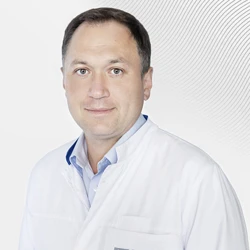
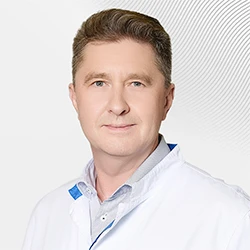
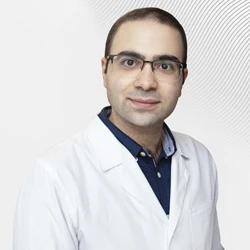
.webp)
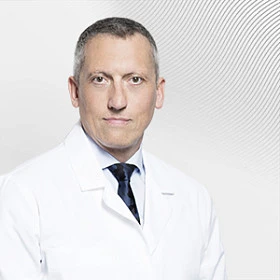
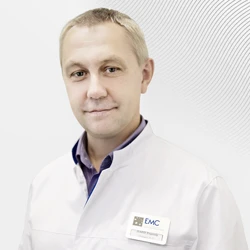
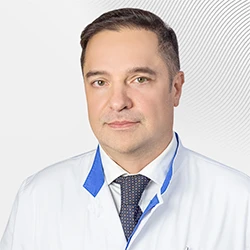
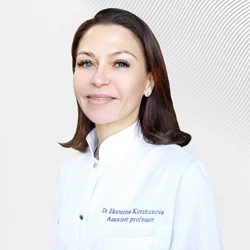

.webp)
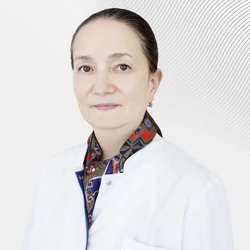
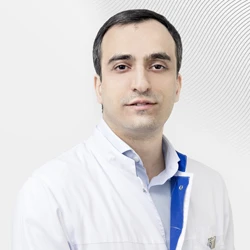
.webp)
